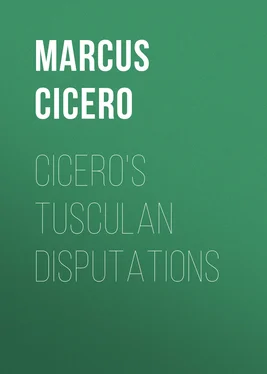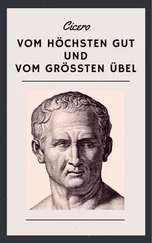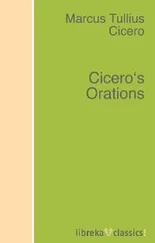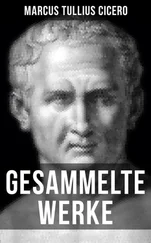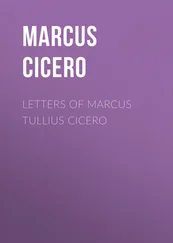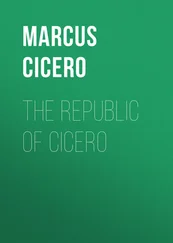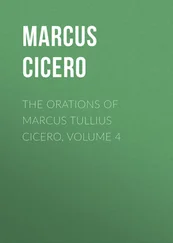Theodectes was a native of Phaselis, in Pamphylia, a distinguished rhetorician and tragic poet, and flourished in the time of Philip of Macedon. He was a pupil of Isocrates, and lived at Athens, and died there at the age of forty-one.
Cineas was a Thessalian, and (as is said in the text) came to Rome as ambassador from Pyrrhus after the battle of Heraclea, 280 b.c., and his memory is said to have been so great that on the day after his arrival he was able to address all the senators and knights by name. He probably died before Pyrrhus returned to Italy, 276 b.c.
Charmadas, called also Charmides, was a fellow-pupil with Philo, the Larissæan of Clitomachus, the Carthaginian. He is said by some authors to have founded a fourth academy.
Metrodorus was a minister of Mithridates the Great; and employed by him as supreme judge in Pontus, and afterward as an ambassador. Cicero speaks of him in other places (De Orat. ii. 88) as a man of wonderful memory.
Quintus Hortensius was eight years older than Cicero; and, till Cicero’s fame surpassed his, he was accounted the most eloquent of all the Romans. He was Verres’s counsel in the prosecution conducted against him by Cicero. Seneca relates that his memory was so great that he could come out of an auction and repeat the catalogue backward. He died 50 b.c.
This treatise is one which has not come down to us, but which had been lately composed by Cicero in order to comfort himself for the loss of his daughter.
The epigram is,
Εἴπας Ἥλιε χαῖρε, Κλεόμβροτος Ὥμβρακιώτης
ἥλατ’ ἀφ’ ὑψηλοῦ τείχεος εἰς Ἀΐδην,
ἄξιον οὐδὲν ἰδὼν θανάτου κακὸν, ἀλλὰ Πλάτωνος
ἓν τὸ περὶ ψύχης γράμμ’ ἀναλεξάμενος.
Which may be translated, perhaps,
Farewell, O sun, Cleombrotus exclaim’d,
Then plunged from off a height beneath the sea;
Stung by pain, of no disgrace ashamed,
But moved by Plato’s high philosophy.
This is alluded to by Juvenal:
Provida Pompeio dederat Campania febres
Optandas: sed multæ urbes et publica vota
Vicerunt. Igitur Fortuna ipsius et Urbis,
Servatum victo caput abstulit.—Sat. x. 283.
Pompey’s second wife was Julia, the daughter of Julius Cæsar, she died the year before the death of Crassus, in Parthia. Virgil speaks of Cæsar and Pompey as relations, using the same expression (socer) as Cicero:
Aggeribus socer Alpinis atque arce Monœci
Descendens, gener adversis instructus Eois.—Æn. vi. 830.
This idea is beautifully expanded by Byron:
Yet if, as holiest men have deem’d, there be
A land of souls beyond that sable shore
To shame the doctrine of the Sadducee
And sophist, madly vain or dubious lore,
How sweet it were in concert to adore
With those who made our mortal labors light,
To hear each voice we fear’d to hear no more.
Behold each mighty shade reveal’d to sight,
The Bactrian, Samian sage, and all who taught the right!
Childe Harold , ii.
The epitaph in the original is:
Ὦ ξεῖν’ ἀγγεῖλον Λακεδαιμονίοις ὅτι τῇδε
κείμεθα, τοῐς κείνων πειθόμενοι νομίμοις.
This was expressed in the Greek verses,
Ἀρχὴς μὲν μὴ φῦναι ἐπιχθονίοισιν ἄριστον,
φύντα δ’ ὅπως ὤκιστα πύλας Ἀΐδϋο περῆσαι
which by some authors are attributed to Homer.
This is the first fragment of the Cresphontes.—Ed. Var. vii., p. 594.
Ἔδει γὰρ ἡμᾶς σύλλογον ποιουμένους
Τὸν φύντα θρηνεῖν, εἰς ὅσ’ ἔρχεται κακά.
Τὸν δ’ αὖ θανόντα καὶ πόνων πεπαυμένον
χαίροντας εὐφημοῖντας ἐκπέμειν δόμων
The Greek verses are quoted by Plutarch:
Ἤπου νήπιε, ἠλίθιοι φρένες ἀνδρῶν
Εὐθύνοος κεῖται μοιριδίῳ θανάτῳ
Οὐκ ἠν γὰρ ζώειν καλὸν αὐτῷ οὔτε γονεῦσι.
This refers to the story that when Eumolpus, the son of Neptune, whose assistance the Eleusinians had called in against the Athenians, had been slain by the Athenians, an oracle demanded the sacrifice of one of the daughters of Erechtheus, the King of Athens. And when one was drawn by lot, the others voluntarily accompanied her to death.
Menœceus was son of Creon, and in the war of the Argives against Thebes, Teresias declared that the Thebans should conquer if Menœceus would sacrifice himself for his country; and accordingly he killed himself outside the gates of Thebes.
The Greek is,
μήδε μοι ἄκλαυστος θάνατος μόλοι, ἀλλὰ φίλοισι
ποιήσαιμι θανὼν ἄλγεα καὶ στοναχάς.
Soph. Trach. 1047.
The lines quoted by Cicero here appear to have come from the Latin play of Prometheus by Accius; the ideas are borrowed, rather than translated, from the Prometheus of Æschylus.
From exerceo .
Each soldier carried a stake, to help form a palisade in front of the camp.
Insania—from in , a particle of negative force in composition, and sanus , healthy, sound.
The man who first received this surname was L. Calpurnius Piso, who was consul, 133 b.c., in the Servile War.
The Greek is,
Ἀλλά μοι οἰδάνεται κραδίη χόλῳ ὅπποτ’ ἐκείνου
Μνήσομαι ὅς μ’ ἀσύφηλον ἐν Ἀργείοισιν ἔρεξεν.—Il. ix. 642.
I have given Pope’s translation in the text.
This is from the Theseus:
Ἐγὼ δὲ τοῦτο παρὰ σοφοῦ τινος μαθὼν
εὶς φροντίδας νοῦν συμφοράς τ’ ἐβαλλόμην
φυγάς τ’ ἐμαυτῷ προστιθεὶς πάτρας ἐμῆς.
θανάτους τ’ ἀώρους, καὶ κακῶν ἄλλας ὁδοὺς
ὡς, εἴ τι πάσχοιμ’ ὠν ἐδόξαζόν ποτε
Μή μοι νέορτον προσπεσὸν μᾶλλον δάκοι.
Ter. Phorm. II. i. 11.
This refers to the speech of Agamemnon in Euripides, in the Iphigenia in Aulis,
Ζηλῶ σε, γέρον,
ζηλῶ δ’ ἀνδρῶν ὃς ἀκίνδυνον
βίον ἐξεπέρασ’, ἀγνὼς, ἀκλεής.—v. 15.
Читать дальше
